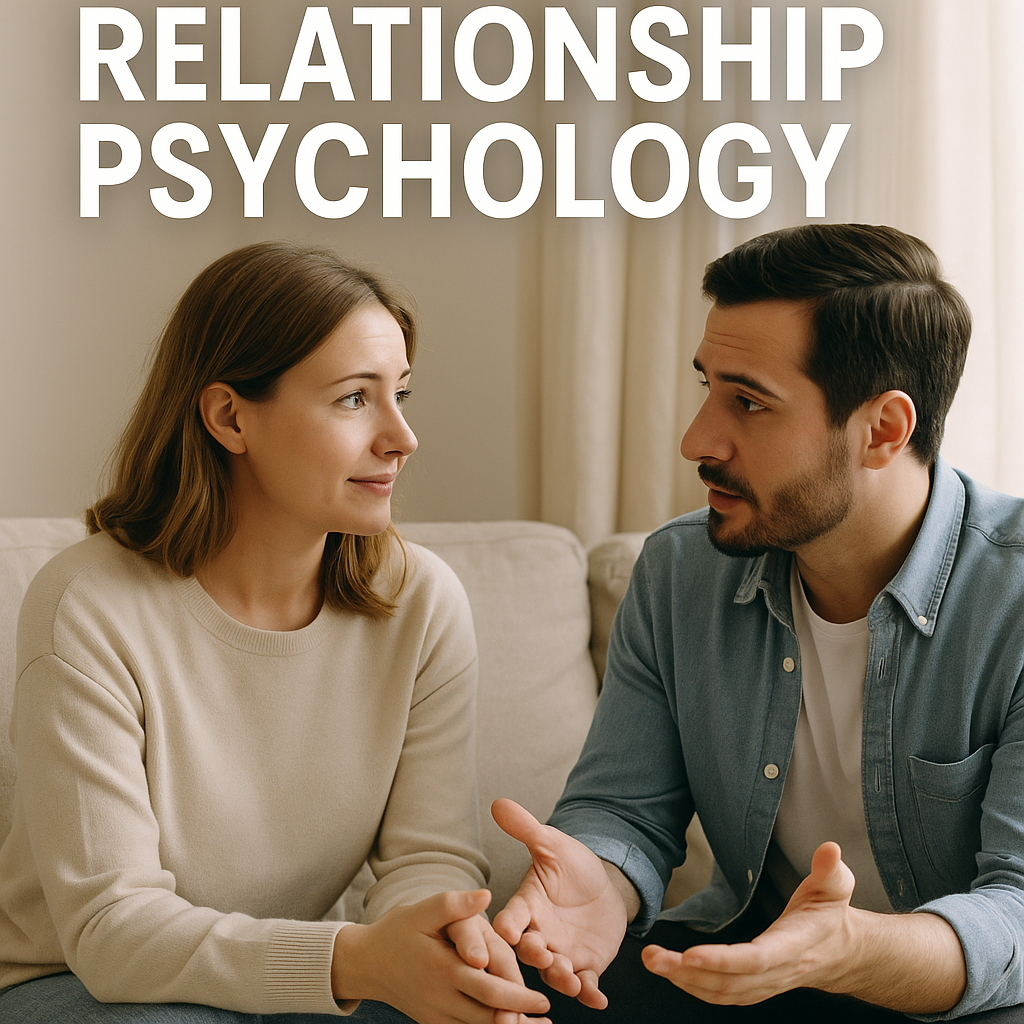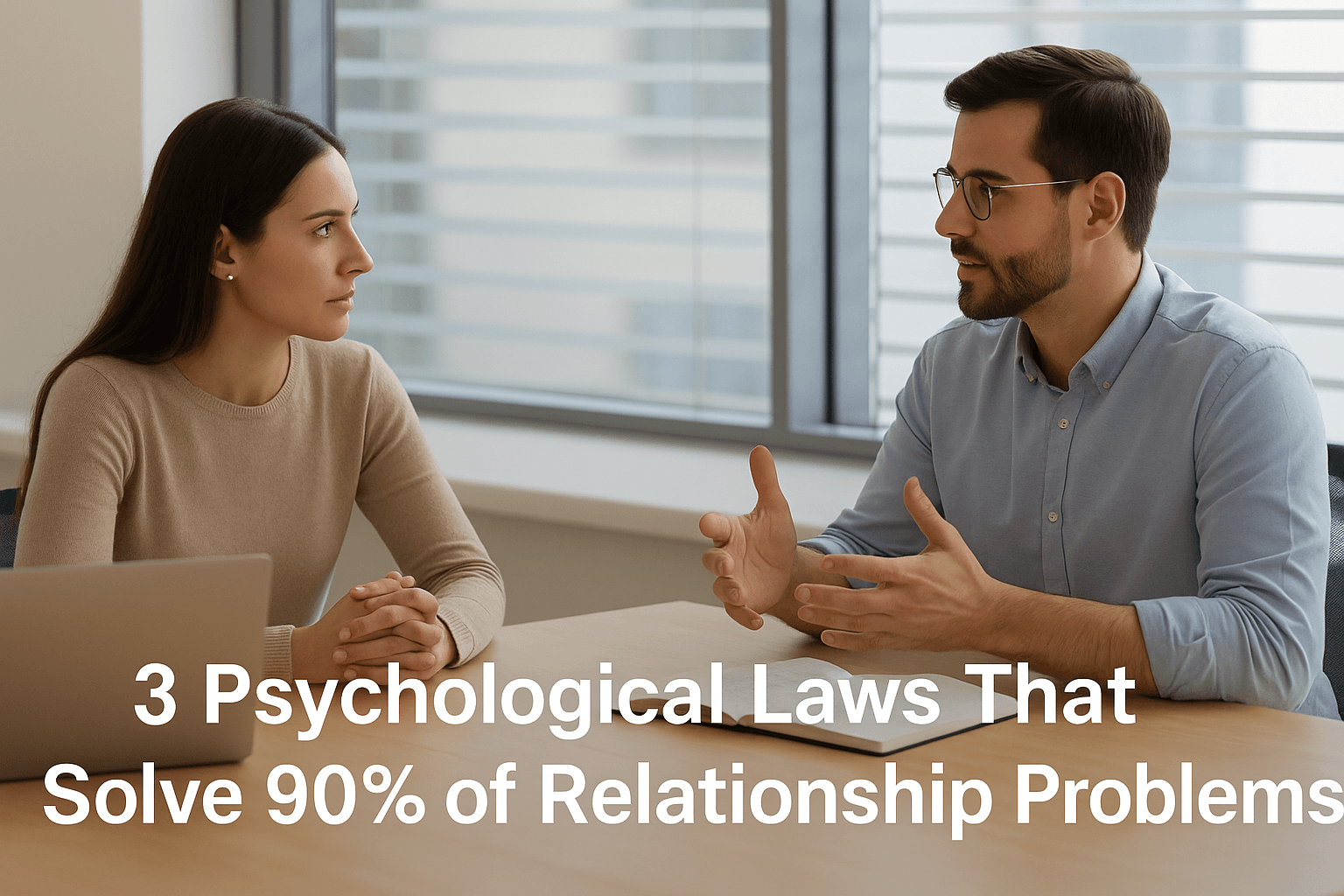Human relationships can be both our greatest joy and our deepest frustration.
But according to relationship psychology, 90% of conflicts can be traced back to just three emotional laws.
We love, argue, misunderstand, and repeat patterns — often without realizing why.
After studying relationship psychology and behavioral science for over a decade, I found a powerful truth:
Most conflicts aren’t about communication problems — they’re about psychological patterns.
Once you understand these three laws, every relationship — romantic, professional, or personal — becomes far easier to navigate.
🪞 1️⃣ The Law of Reflection — People Mirror Your Energy
In psychology, mirroring is the subconscious act of matching another person’s tone, emotion, or energy.
The way you show up emotionally directly shapes how others respond to you.
If you project anxiety, defensiveness, or hostility, you’ll receive the same back.
But when you show calm, openness, and respect, others mirror it back too.
How to Apply It:
- Pause and breathe before reacting emotionally.
- Replace judgment with curiosity (“Why might they feel that way?”).
- Use gratitude as a disarming tool — it changes tone instantly.
💡 Energy is contagious — what you project, you collect.
Boost Your Study Efficiency: Science-Backed Learning Strategies
👁️ 2️⃣ The Law of Perception — Everyone Lives in a Different Reality
One of the core principles of relationship psychology is perception bias:
Each person interprets the same event differently based on past experiences, values, and emotions.
What seems harmless to you may feel hurtful to someone else.
So conflict isn’t about right or wrong — it’s about mismatched realities.
How to Apply It:
- Listen to understand, not to reply.
- Reflect their words: “So you felt ignored when I…”
- Validate emotions even if you disagree — empathy ≠ agreement.
💬 Arguing with perception is like arguing with gravity — it’s pointless.
American Psychological Association – Understanding Perception Bias

🤝 3️⃣ The Law of Reciprocity — Respect Creates Respect
Humans are hardwired for emotional exchange.
When we feel valued, we naturally mirror appreciation and trust.
When we feel dismissed, we mirror defensiveness and withdrawal.
The Law of Reciprocity says: You get back the energy you give, amplified by emotion.
How to Apply It:
- Begin corrections with appreciation: “I really value your help, but…”
- Avoid sarcasm or subtle jabs — they destroy safety.
- Offer genuine praise daily, not just during milestones.
🧠 Reciprocity is the emotional economy of relationships.
💭 Why These 3 Laws Work
Most relationship stress isn’t caused by others — it’s caused by our own filters.
When we change how we perceive, project, and reciprocate energy, the entire dynamic shifts.
- Reflection controls emotional contagion.
- Perception reframes conflict into understanding.
- Reciprocity rebuilds trust.
When practiced together, these laws form the foundation of emotional intelligence — the quiet power that transforms relationships.
5 Practical Investment Strategies to Build $100,000 in a Year
🌟 Final Thought
You can’t control others — but you can influence what they reflect back.
You can’t change their perception — but you can listen to understand it.
You can’t demand respect — but you can model it until it’s mirrored.
Master these three laws of relationship psychology,
and you’ll not just solve 90% of conflicts — you’ll upgrade every human connection you have.
💬 Emotional intelligence isn’t a skill — it’s a lifestyle.
